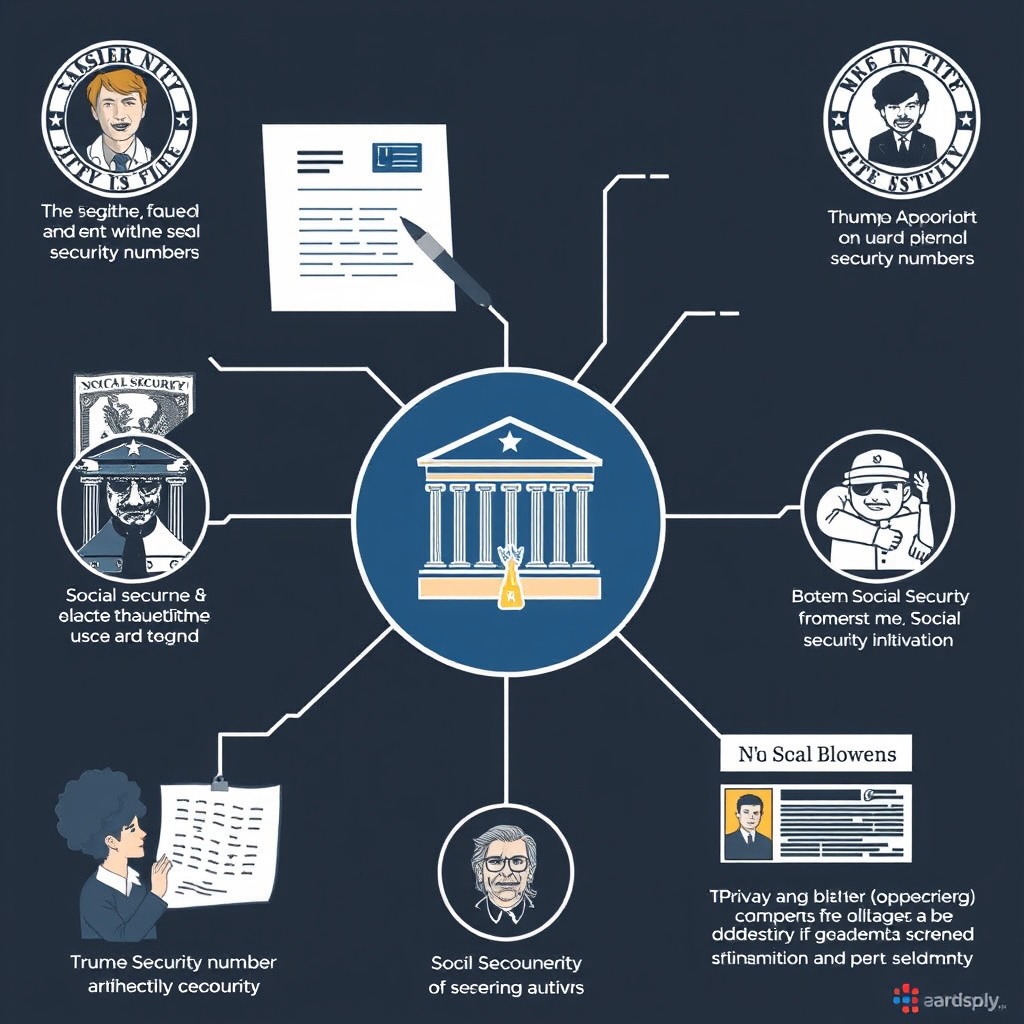Introduction
In a shocking revelation, a whistleblower has come forward with allegations that former senior officials from the Trump administration, now employed at the Social Security Administration, have been involved in the unauthorized copying of millions of Social Security numbers. This egregious breach of privacy and trust has sent shockwaves through the nation, raising concerns about the safety and security of sensitive personal information. The whistleblower's claims suggest that not only were Social Security numbers compromised, but also the names and birthdays of individuals, placing them at risk of identity theft and other malicious activities. This article will delve into the details of the whistleblower's allegations, the potential consequences of such a breach, and the measures being taken to address this serious issue.
Background and Allegations
The whistleblower, whose identity has not been disclosed, alleges that a former senior official from the Trump administration, now working at the Social Security Administration, copied millions of Social Security numbers, along with corresponding names and birthdays. The motivation behind this action is unclear, but the implications are profound. Social Security numbers are highly sensitive pieces of information, used for a wide range of purposes, including employment verification, tax returns, and accessing government benefits. The unauthorized possession of these numbers by individuals with potentially malicious intentions poses a significant threat to the privacy and financial security of those affected.
According to the whistleblower, the copying of Social Security numbers was not an isolated incident, but rather part of a larger pattern of behavior that raises serious questions about the handling of sensitive information within the Social Security Administration. The allegations suggest a lack of oversight and accountability, allowing individuals with access to sensitive data to exploit it for unknown purposes. This breach of trust is not only a violation of the public's faith in government institutions but also a stark reminder of the vulnerabilities in our data protection systems.
Consequences and Risks
The consequences of this breach are far-reaching and potentially devastating. Identity theft, financial fraud, and other malicious activities are just a few of the risks associated with the unauthorized possession of Social Security numbers. Individuals whose information has been compromised may face significant challenges in protecting their financial and personal security, including the need to monitor their credit reports closely, place fraud alerts on their accounts, and potentially even change their Social Security numbers. The emotional and financial toll of such a breach should not be underestimated, as victims may spend years dealing with the aftermath of identity theft and fraud.
Furthermore, this incident highlights the broader issue of data security within government agencies. The Social Security Administration, like many other government entities, holds vast amounts of sensitive personal information, making it a prime target for cyberattacks and data breaches. The fact that a former senior official was allegedly able to copy millions of Social Security numbers without detection raises serious questions about the efficacy of current data protection measures. It underscores the need for more robust security protocols, including better access controls, enhanced monitoring of data activity, and stricter penalties for those who mishandle sensitive information.
Response and Accountability
In response to the whistleblower's allegations, the Social Security Administration has launched an investigation into the matter, promising to take all necessary steps to protect the sensitive information in its care. This includes reviewing its data security protocols, ensuring that all employees understand the gravity of handling sensitive information, and cooperating fully with any external investigations. The administration has also assured the public that it is working to notify individuals whose information may have been compromised, providing them with resources and support to mitigate any potential harm.
However, the response from the administration and other government agencies must go beyond mere assurances. Concrete actions are needed to address the systemic issues that allowed this breach to occur. This includes implementing more stringent background checks for employees with access to sensitive information, enhancing data encryption and access controls, and establishing clearer protocols for reporting and investigating suspicious activity. Furthermore, there must be accountability for those responsible for this breach, including disciplinary actions against any individuals found to have mishandled sensitive information and potentially legal consequences for violations of privacy laws.
Conclusion
The allegations of a whistleblower regarding the copying of millions of Social Security numbers by former Trump officials now at the Social Security Administration are a stark reminder of the vulnerabilities in our data protection systems and the importance of accountability within government agencies. As the investigation into this matter continues, it is crucial that all necessary steps are taken to protect the sensitive information of individuals and to prevent such breaches from occurring in the future. This includes not only enhancing data security measures but also ensuring that those responsible for handling sensitive information understand the gravity of their actions and face consequences for any misconduct. The public's trust in government institutions to safeguard their personal information is paramount, and it is the duty of these institutions to uphold this trust through robust security measures, transparency, and accountability. Only through such efforts can we hope to mitigate the risks associated with data breaches and ensure the privacy and security of all individuals.


Leave a comment